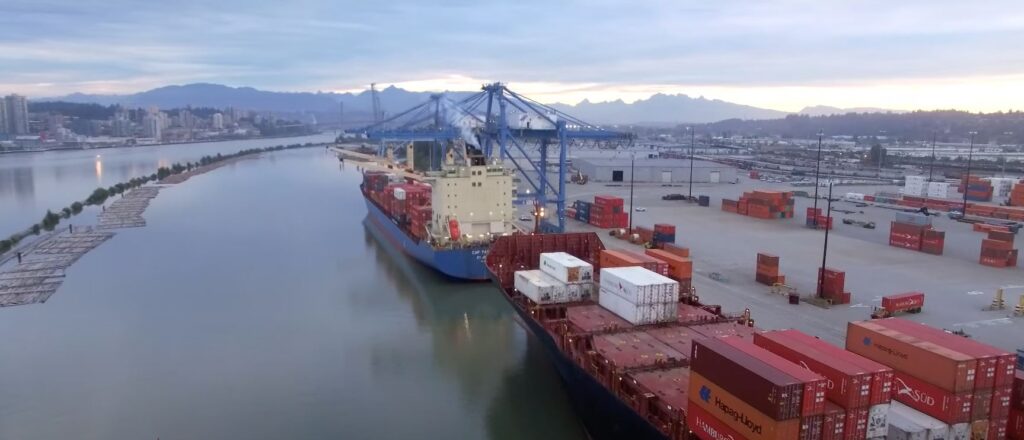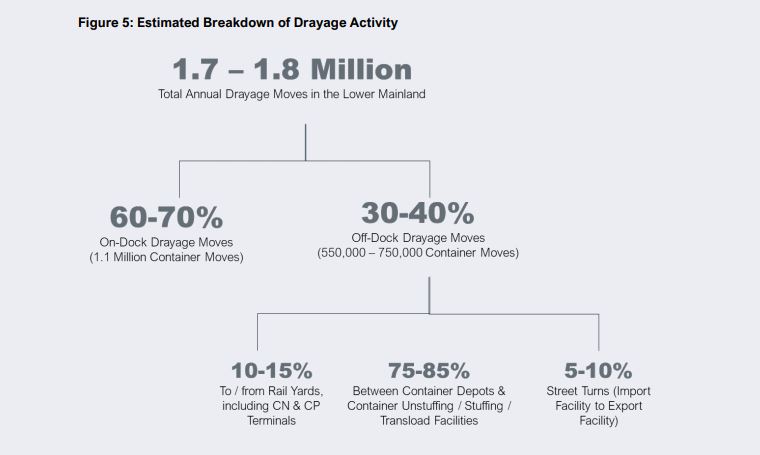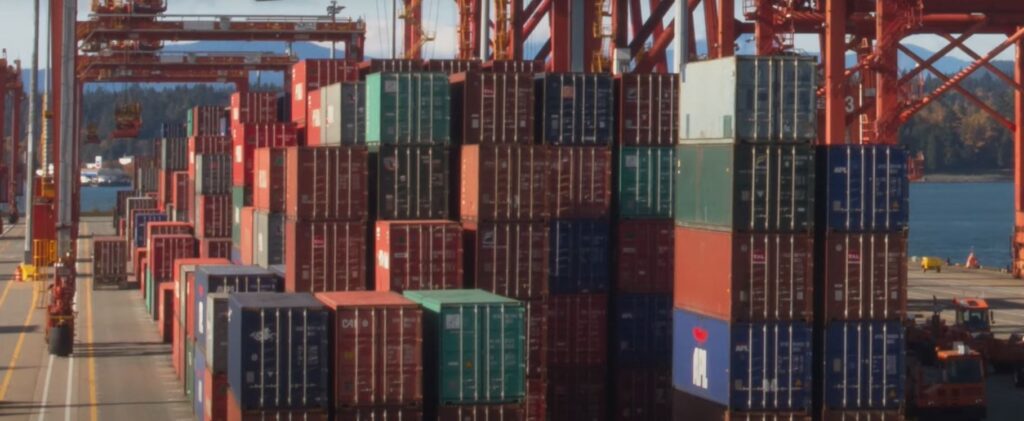Report calls for changes to B.C. Container Trucking Act
VANCOUVER, B.C. – An independents study on the off-dock container movements at the Port of Vancouver is calling for changes to the Container Trucking Act to improve fairness and efficiency in the Lower Mainland drayage sector.
Off-Dock Drayage Insights was commissioned by British Columbia amid fresh protests over off-dock trucking activities. It was released Wednesday.

Labor groups have long complained that unlicensed truckers are moving containers off-dock within the Lower Mainland area at steeply discounted prices, undermining licensed, fee-paying companies.
Uneven playing field
The report by Cascadia Partners acknowledged the problem.
“Two tiers of drayage providers are emerging in the Lower Mainland — those that are licensed and therefore must pay OBCCTC rates and those that are not licensed and have flexibility to pay drivers according to an agreed upon amount (sometimes set through collective bargaining), creating an ‘uneven playing field’ for TLS operators.”
OBCCTC refers to the Office of the B.C. Container Trucking Commissioner and TLS to the port’s Truck Licensing System.
“The greatest variation in compensation happens among trip rate drivers completing off-dock work,” the report said.
“Trip rates for licensed TLS companies completing short off-dock loops are $50-75 higher than the rates paid to drivers working for unlicensed companies or hourly drivers for the same loop.”

The report said that in recent years, a substantial portion of off-dock drayage activity has shifted to unlicensed companies.
It pointed that several TLS licence holders have set up unlicensed companies or partnered with an unlicensed company to complete off-dock drayage activities less expensively.
The report said OBCCTC regulations have only been applied to TLS licence holders, so unlicensed companies have been free to set their own trip and hourly rates.
“These rates are often substantially lower than the TLS off-dock trip rates. Many companies in the TLS system see these affiliated companies as ‘shadow companies’ that are exploiting a loophole in the container trucking regulation.”

Grey area
The report further said that the varied interpretations of the intention of the regulation, its application and the consequences of acting in contravention of the regulation have resulted in “grey area” activity.
“Addressing unlicensed activity may require changes to the scope and administration of the existing Container Trucking Act.”
– Off-Dock Drayage Insights
It said such activity does not directly violate the regulations, but acts in opposition to the intended purpose of the legislation.
“Addressing unlicensed activity may require changes to the scope and administration of the existing Container Trucking Act,” the report said.
“These shifts need to be considered in the larger context of container trucking legislation and the goals of the (Vancouver) Gateway, including fairness, stability, efficiency and competitiveness.”
Canada’s largest public sector union seized on the report, saying quick action is needed.
“It’s time to act. Zero doubt remains about a thriving black market that undermines legitimate business,” said Jerry Dias, president of Unifor.
“Law-abiding truckers deserve justice.”
Commitment to fairness
In releasing the report, B.C.’s minister of transportation and infrastructure Claire Trevena said the province is committed to ensuring fairness and stability throughout the container trucking sector.

“That is why I have asked the B.C. container trucking commissioner to consult with companies and workers in the ongoing review of the off-dock sector.”
Commissioner Michael Crawford will soon meet with industry stakeholders to discuss the findings.
“Based on the report findings, the consultation will look at opportunities to make targeted adjustments to rates, policy and regulation to ensure fair and equitable working conditions that support a stable, efficient and competitive container-trucking sector,” the province said.
The commissioner’s recommendations are expected by the end of this year.
- This story has been updated with reaction from Unifor.
Have your say
This is a moderated forum. Comments will no longer be published unless they are accompanied by a first and last name and a verifiable email address. (Today's Trucking will not publish or share the email address.) Profane language and content deemed to be libelous, racist, or threatening in nature will not be published under any circumstances.
We need to enforcement of minimum freight rates on container movements. The b C T A needs to black list anyone paying less than agreed rates. The B C government needs not provide insurance to any B C based company paying less than fair wages to bus or truck drivers. P S under housed and paid truck drivers is a big problem in Ontario Canada also.